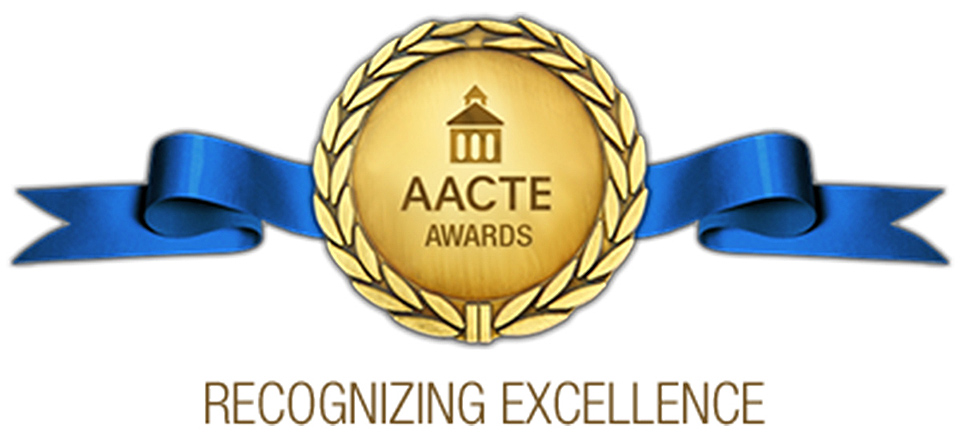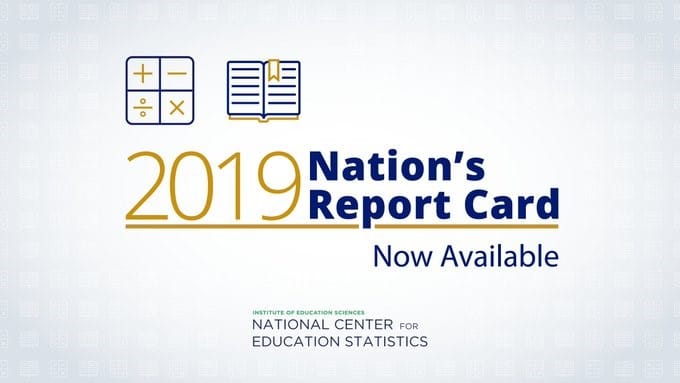24 Apr2020
By Linda Minor
 Do you know someone who recently completed a prize-worthy doctoral dissertation related to educator preparation? Applications for AACTE’s 2021 Outstanding Dissertation Award are being accepted in our online submission system now through August 21.
Do you know someone who recently completed a prize-worthy doctoral dissertation related to educator preparation? Applications for AACTE’s 2021 Outstanding Dissertation Award are being accepted in our online submission system now through August 21.
This award recognizes excellence in doctoral dissertation research (or its equivalent) that contributes to the knowledge base of educator preparation or of teaching and learning with implications for educator preparation. Overseen by AACTE’s Committee on Research and Dissemination, this award includes a $1,000 cash prize, as well as special recognition at AACTE’s 73rd Annual Meeting in Seattle, WA, February 26 – 28, 2021.
Individuals receiving a doctorate since January 1, 2019 are eligible to apply for this award. The primary selection criterion is quality of scholarship. The narrative summary file should answer the following questions about the dissertation:
09 Apr2020
By Linda Minor

Applications for the 2021 AACTE awards are now open. For most of the awards, programs and individuals can be either self-nominated or nominated by a third party. To submit your nomination, visit AACTE’s online submission site. Entries for the Outstanding Book Award are due May 15 and entries for the Outstanding Dissertation Award are due August 15. The due date for all other award submissions is October 9.
Winning entries will be decided by the AACTE standing committees and recognized formally at the 2021 Annual Meeting, February 26 – 28, in Seattle, Washington.
11 Mar2020
By Jacqueline E. King, Ph.D.
The 2018 Teaching and Learning International Survey (TALIS) released by the Organisation for Economic Co-operation and Development (OECD) covers about 260,000 teachers in 15,000 schools across 48 countries and economies.
The survey found that 67% of U.S. teachers under age 30 claimed teaching was their first career choice, consistent with the average for all participating countries. However, more than 73% of young teachers in Finland and close to 80% of young teachers in Alberta, Canada said teaching was their first choice. Moreover, 85% of young teachers in Japan and over 90% of young teachers in South Korea indicated teaching was their first-choice career.
Positive findings are that teachers in the United States are more likely to have received formal preparation on teaching students with special needs and on teaching in multicultural and/or multilingual settings, and feel better prepared in those areas than their peers in other OECD countries.
10 Feb2020
By Jerrica Thurman
 AACTE has chosen an article by Amy Rector-Aranda, Ph.D. of Texas A&M University, the recipient of the 2020 AACTE Outstanding Journal of Teacher Education Article Award. Her article, “Critically Compassionate Intellectualism in Teacher Education: The Contributions of Relational-Cultural Theory,” was published in the September/October 2019 issue of the journal and will be recognized formally with the award at the AACTE 72nd Annual Meeting, February 28 – March 1, in Atlanta, GA.
AACTE has chosen an article by Amy Rector-Aranda, Ph.D. of Texas A&M University, the recipient of the 2020 AACTE Outstanding Journal of Teacher Education Article Award. Her article, “Critically Compassionate Intellectualism in Teacher Education: The Contributions of Relational-Cultural Theory,” was published in the September/October 2019 issue of the journal and will be recognized formally with the award at the AACTE 72nd Annual Meeting, February 28 – March 1, in Atlanta, GA.
In the article, Rector‐Aranda explores how the critically compassionate intellectualism framework might translate as a framework for teacher education. Educational theorists Cammarota and Romero describe critically compassionate intellectualism (CCI) as a trilogy of critical pedagogy, authentic caring, and social‐justice oriented curriculum used to lift up previously disempowered Latinx youth. Because the compassion element in CCI is understudied in teacher education, yet crucial to the success of the framework as a whole, Rector‐Aranda applies the tents of Relational‐Cultural Theory (RCT) to enhance understandings of this component. Based in feminist theories of psychosocial and moral development, RCT expands the original framework to account for varied experiences of privilege and vulnerability when applying CCI to teacher education while retaining core emphases on relationships, empathy, and associate aspects of authentic caring. This study makes a conceptual contribution by offering an integrated framework for teacher education.
06 Feb2020
By JTE Insider

This blog is available to the public, and AACTE members have free access to the articles in the JTE online archives—just log in with your AACTE profile.
In this interview, the JTE editorial team shares insights from Adrie A. Koehler, who writes on behalf of her work with co-authors Peggy A. Ertmer and Timothy J. Newby from their article “Developing Preservice Teachers’ Instructional Design Skills Through Case-Based Instruction: Examining the Impact of Discussion,” published in the September/October 2019 issues of the Journal of Teacher Education.
What motivated you to pursue this particular research topic?
30 Jan2020
A Look at Black Males and Education Using Critical Race Theory
By Kimberly White Smith and Quaylan Allen
Ed Prep Matters features the “Revolutionizing Education” column to spotlight the many ways AACTE, member institutions, and partners are pioneering leading-edge research, models, strategies and programs that focus on the three core values outlined in the current AACTE strategic plan: Diversity, Equity, and Inclusion; Quality and impact; and Inquiry and Innovation.
 Newly-elected AACTE Board member Kimberly A. White-Smith and her colleague Quaylan Allen published the following two studies in Urban Education and Equity & Excellence in Education in which they examine practices that influence the education of black males in the United States. The studies are summarized in the abstracts below with links to the full articles.
Newly-elected AACTE Board member Kimberly A. White-Smith and her colleague Quaylan Allen published the following two studies in Urban Education and Equity & Excellence in Education in which they examine practices that influence the education of black males in the United States. The studies are summarized in the abstracts below with links to the full articles.
“That’s Why I Say Stay in School”: Black Mothers’ Parental Involvement, Cultural Wealth, and Exclusion in Their Son’s Schooling
This study examines parental involvement practices, the cultural wealth, and school experiences of poor and working-class mothers of Black boys. Drawing upon data from an ethnographic study, we examine qualitative interviews with four Black mothers. Using critical race theory and cultural wealth frameworks, we explore the mothers’ approaches to supporting their sons’ education. We also describe how the mothers and their sons experienced exclusion from the school, and how this exclusion limited the mothers’ involvement. We highlight their agency in making use of particular forms of cultural wealth in responding to the school’s failure of their sons.
“Just as Bad as Prisons”: The Challenge of Dismantling the School-to-Prison Pipeline Through Teacher and Community Education
Drawing upon the authors’ experiences working in schools as teachers, teacher educators, researchers, and community members, this study utilizes a Critical Race Theory of education in examining the school-to-prison pipeline for black male students. In doing so, the authors highlight the particular role educators play in the school-to-prison pipeline, focusing particularly on how dispositions toward black males influence educator practices. Recommendations and future directions are provided on how education preparation programs can play a critical role in the transformation of black male schooling.
If you would like to share your story about how your institution or organization is revolutionizing approaches to Diversity, Equity, and Inclusion; Quality and Impact; and Inquiry and Innovation, please contact Katrina Norfleet at knorfleet@aacte.org.
14 Jan2020
By Jacqueline Rodriguez

AACTE and partner, Educator Preparation Laboratory (EdPrepLab), an initiative of the Learning Policy Institute (LPI) and Bank Street College of Education, will host the second of a series of four webinars, Preparing educators for diverse, equitable, and inclusive classrooms, on January 30.
This collaborative webinar focuses on strategies to increase the preparation of both teachers and leaders. AACTE and EdPrepLab are excited to provide you with an opportunity to learn from and with our dynamic webinar leaders. Four dynamic experts who are advancing diversity, equity, and inclusion in their practice, research, and daily interactions with teachers, leaders, and community stakeholders will present during the webinar:
02 Jan2020
By Michael N. Cosenza
This article originally appeared in the VC Reporter Power to Speak op-ed section and is reprinted with permission.

With all the political distractions in the news, one critical issue seems to get very little attention. This is the impending teacher shortage. I use the term impending because here in Ventura County, we have not felt the pain of the teacher shortage in quite the same way as other areas of the state. That will not be the case for long, however.
One significant factor contributing to the shortage is that young high school and college-age students are simply not choosing teaching as a career. In fact, the Learning Policy Institute (LPI) has reported a 73% enrollment decline in California teacher preparation programs since 2002. According to LPI, more than 75,000 candidates were enrolled to become teachers in 2002 compared to just over 20,000 in 2016. Looking at the same years, the California Commission on Teacher Credentialing (CTC) reported a 47% decline in new teacher credentials issued, with 29,556 in 2002 dropping to 15,440 in 2016. This means each year we are sending fewer new teachers into the profession to take the place of retiring baby boomers and fill the openings created by increased population. In short, we are not preparing enough new teachers to sustain our school system.
27 Nov2019
By Bryan Cook and William (Bill) Therrian
There is a paucity of adequately powered studies; experimental research; independent replications; and studies with diverse and representative samples, settings, and contexts in the teacher-preparation research base. As such, it is difficult to identify generalizable, evidence-based practices for teacher preparation. One potential way to address these challenges is through crowdsourcing.
In contrast to the traditional research paradigm, in which individuals or small teams conduct many small studies, crowdsourcing leverages the broad scientific community to conduct studies on a scale not otherwise possible (Makel et al., 2019). “Crowdsourcing flips research planning from ‘what is the best we can do with the resources we have to investigate our question,’ to ‘what is the best way to investigate our question, so that we can decide what resources to recruit’” (Uhlmann et al., 2019, p. 713).
22 Nov2019
By Katrina Norfleet
Ed Prep Matters features the “Revolutionizing Education” column to spotlight the many ways AACTE, member institutions, and partners are pioneering leading-edge research, models, strategies and programs that focus on the three core values outlined in the current AACTE strategic plan: Diversity, Equity, and Inclusion; Quality and impact; and Inquiry and Innovation.

AACTE recently released its 2020-2023 Strategic Plan, which includes a new vision statement: AACTE, its members, and partners collaborate to revolutionize education for all learners. Aligned with the new strategic plan, Ed Prep Matters is launching a new column called Revolutionizing Education to showcase the many ways the Association and member institutions are moving beyond traditional perspectives and are pioneering positive change in educator preparation.
The Revolutionizing Education column is an opportunity for member institutions and partners to share the leading-edge research, models, strategies, programs, and initiatives that focus on the three core values outlined in the new AACTE strategic plan:
- Diversity, Equity, and Inclusion
- Quality and impact
- Inquiry and Innovation
20 Nov2019
By Maria Hyler

On November 14, I had the privilege of moderating the first in a series of webinars produced through a partnership of AACTE and the Educator Preparation Laboratory (EdPrepLab). This webinar, “Social and Emotional Learning, Cultural Competence, and Equity in Teacher Preparation,” will be followed by three others focusing on transformative research and practice in educator preparation.
Joining me for the webinar were Nancy Markowitz of the Center for Reaching and Teaching the Whole Child, Patty Swanson from San Jose State University, Pat Norman from Trinity University, and Mari Jones from the HighTech High Graduate School of Education.
Both Trinity and High Tech High, where Norman and Jones teach, are members of the EdPrepLab network. EdPrepLab, which launched this year, is an initiative of the Learning Policy Institute and the Bank Street College of Education that aims to strengthen educator preparation in the United States by linking research, policy, and practice and by supporting and expanding preparation that is equity-focused, student-centered, and grounded in the science of learning and development.
14 Nov2019
By Bryan Cook and William (Bill) Therrian
The motto of the Royal Society, “Nullius in verba” translates as “Take nobody’s word for it.” However, when educators read journal articles reporting research findings, transparency is limited. For example, educators only see authors’ reports of findings, and do not have access to data (to verify reported findings) or to the details of the research procedures (to examine, for example, whether researchers developed their hypotheses after knowing the results). This lack of transparency is potentially problematic, because researchers may be driven to find and report positive and significant findings to enhance the odds of publication. Indeed, many educational researchers report engaging in questionable research practices that might help generate positive, but potentially biased, research findings (Makel, Hodges, Cook, & Plucker, 2019). Open science is an umbrella term, encompassing diverse initiatives that aim to increase transparency in research. We briefly describe three open-science practices here: pre-registration, Registered Reports, and open data.
13 Nov2019
By JTE Insider

Read the latest JTE Insider blog interview by the Journal of Teacher Education (JTE) editorial team. This blog is available to the public, and AACTE members have free access to the articles in the JTE online archives—just log in with your AACTE profile.
In this interview, The JTE editorial team shares insights from the Sue C. Kimmel and Danielle E. Hartsfield, co-authors of the article “It Was . . . the Word ‘Scrotum’ on the First Page”: Educators’ Perspectives of Controversial Literature, published in the September/October 2019 issues of the Journal of Teacher Education.
What motivated you to pursue this particular research topic?
Sue: We both teach children’s literature, and we were interested in how our students who were pre-service educators reacted to controversy in children’s literature. We believe in the power of literature to promote empathy and positive inquiry into social issues. We were concerned with the willingness of pre-service educators to avoid “controversy” in the classroom and library with little critical thought about what it meant to withhold quality literature about difficult topics from their students.
12 Nov2019
By Katrina Norfleet
 The recent release of the 2019 Nation’s Report Cards for mathematics and reading in grades 4 and 8 illustrates a growing disparity in achievement between the highest and lowest achieving students. The results show the divergence is happening across the nation, across states, and for student groups by race/ethnicity and socioeconomic status.
The recent release of the 2019 Nation’s Report Cards for mathematics and reading in grades 4 and 8 illustrates a growing disparity in achievement between the highest and lowest achieving students. The results show the divergence is happening across the nation, across states, and for student groups by race/ethnicity and socioeconomic status.
The National Assessment of Educational Progress (NAEP), widely known as the Nation’s Report Card, provides data from the nation, states/jurisdictions, and urban school districts that volunteer to participate in the Trial Urban District Assessment (TUDA). Approximately 296,900 fourth- and eighth-grade students across the nation participated in the 2019 mathematics assessment and nearly 294,000 fourth- and eighth-grade students across the nation participated in the 2019 reading assessment. Results are available for the 50 states, the District of Columbia, and Department of Defense schools, as well as for the 27 participating large urban districts.
29 Oct2019
By Jacqueline Rodriguez

AACTE is excited to partner with the Educator Preparation Laboratory (EdPrepLab), an initiative of the Learning Policy Institute (LPI) and Bank Street College of Education, to bring a series of webinars to members. Educator preparation programs across the country can access AACTE and EdPrepLab resources to support their teaching, research, and policy in higher education.
In this series of webinars, our members will hear from member institutions, stakeholders, scholars, practitioners, and policymakers as presenters dive into topics that will include addressing social emotional learning, cultural competence, creating inclusive classroom and school environments, and teacher residency models.
We hope you will register for our first webinar on Social and Emotional Learning, Cultural Competence, and Equity in Teacher Preparation that will take place on November 14 at 3:00 p.m ET. The panel of experts include:
 Do you know someone who recently completed a prize-worthy doctoral dissertation related to educator preparation? Applications for AACTE’s 2021 Outstanding Dissertation Award are being accepted in our online submission system now through August 21.
Do you know someone who recently completed a prize-worthy doctoral dissertation related to educator preparation? Applications for AACTE’s 2021 Outstanding Dissertation Award are being accepted in our online submission system now through August 21.







 AACTE has chosen an article by Amy Rector-Aranda, Ph.D. of Texas A&M University, the recipient of the 2020 AACTE Outstanding Journal of Teacher Education Article Award. Her article, “
AACTE has chosen an article by Amy Rector-Aranda, Ph.D. of Texas A&M University, the recipient of the 2020 AACTE Outstanding Journal of Teacher Education Article Award. Her article, “
 Newly-elected AACTE Board member Kimberly A. White-Smith and her colleague Quaylan Allen published the following two studies in Urban Education and Equity & Excellence in Education in which they examine practices that influence the education of black males in the United States. The studies are summarized in the abstracts below with links to the full articles.
Newly-elected AACTE Board member Kimberly A. White-Smith and her colleague Quaylan Allen published the following two studies in Urban Education and Equity & Excellence in Education in which they examine practices that influence the education of black males in the United States. The studies are summarized in the abstracts below with links to the full articles.



 The recent release of the 2019 Nation’s Report Cards for mathematics and reading in grades 4 and 8 illustrates a growing disparity in achievement between the highest and lowest achieving students. The results show the divergence is happening across the nation, across states, and for student groups by race/ethnicity and socioeconomic status.
The recent release of the 2019 Nation’s Report Cards for mathematics and reading in grades 4 and 8 illustrates a growing disparity in achievement between the highest and lowest achieving students. The results show the divergence is happening across the nation, across states, and for student groups by race/ethnicity and socioeconomic status.